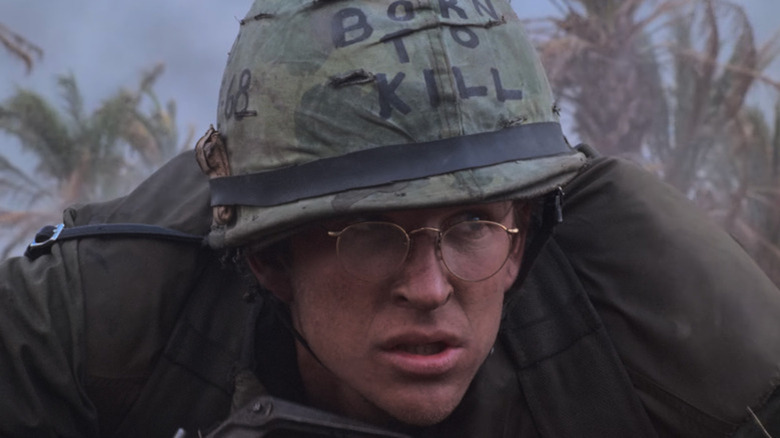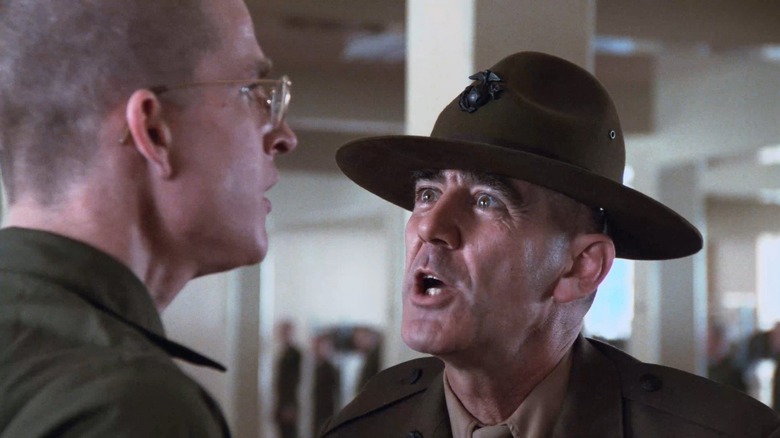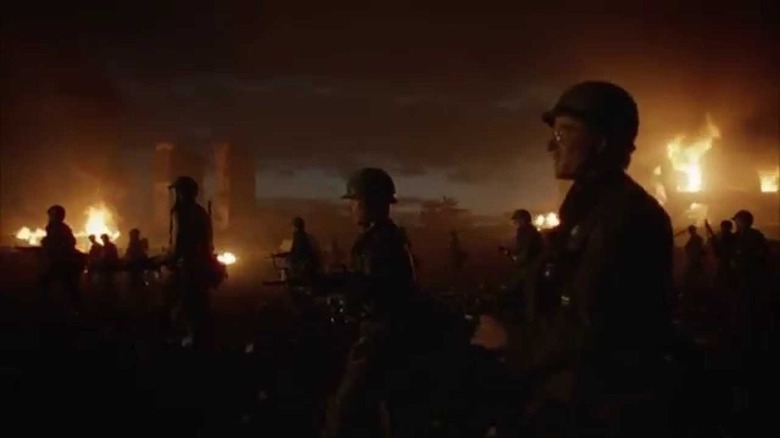Full Metal Jacket's Vietnam Set Was Literally Toxic, According To Matthew Modine
Making a movie with Stanley Kubrick could be an exhausting experience. The perfectionist filmmaker was notorious for subjecting actors to take after take until he'd drained the acting out of the scene. He still holds the Guinness World Record for racking up 148 takes with Scatman Crothers and Danny Lloyd for the "shine" sequence on the set of "The Shining." And people generally put up with this because it was an honor to work with the reclusive director, whose every movie was treated as a cinematic event.
For his 1987 classic "Full Metal Jacket," Kubrick rounded up a group of young actors who worshiped him, and flung them into two separate hells: a Parris Island boot camp and Da Nang during the Vietnam War. Kubrick shot the Vietnam half at the abandoned Beckton Gas Works in London. The sprawling location had been used in films before (it's where James Bond disposes of Blofeld at the outset of "For Your Eyes Only"), and if you thought it looked like a grim setting from the air, the cast of "Full Metal Jacket" discovered that it was much more desolate on the ground. Worse than that, it was actually one big health hazard.
War is hell, and so was the Beckton Gas Works
In a 2020 interview with The Hollywood Reporter, Modine called the Beckton Gas Works "one of the most toxic places I've ever been to in my life." In fact, they shot the Vietnam portion of the film first because the entire facility was due for demolition. Modine describes the conditions at the location thusly:
"If you Wikipedia Beckton Gas Works, you'll see that there were probably 30 or more known carcinogens that were in the soil. There was also asbestos everywhere, and when you went home from work and took a bath, the tub would literally turn a kind of cobalt blue with all this dirt and chemicals that came off of your body. It was a sickening place, and after we finished up at Beckton, we all needed an opportunity to relax and cleanse that crap out of our bodies."
This opportunity unexpectedly presented itself when R. Lee Ermey cracked his ribs in a car accident. The production was paused for four-and-a-half-months to allow the actor time to rest up for his physically and emotionally demanding role as drill instructor Gunnery Sergeant Hartman (Modine reveals that Ermey was still in a great deal of pain when shooting resumed). Fortunately, there aren't reports of cast and crew taking ill after their experience at Beckton, but you wonder if Kubrick would've been able to get away with using the plant today.
An unshakable cinematic experience
No one should risk their health to make a movie, but on a purely aesthetic level, the Beckton Gas Works offers a hauntingly surreal backdrop for the hellish street combat sequences. As Modine told The Guardian in 2017, "It would have been a completely different film if we'd gone to the jungles and shot Vietnam that way. The street fighting, I think, is one of the things that makes the film timeless. It looks like Afghanistan or Iraq today."
Francois Truffaut once said there is no such thing as an anti-war film, but I have no idea how anyone can watch "Full Metal Jacket" and want to enlist in the military. It's a film about complete and total dehumanization that ends with the surviving soldiers marching dead-eyed while singing "The Mickey Mouse Club" theme. You can wash off the toxins of the Beckton Gas Works, but the residue of war is permanent.


